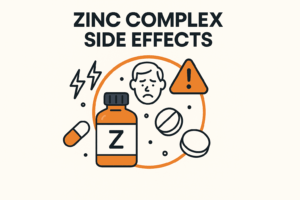L-Carnitine, a naturally occurring amino acid, plays a crucial role in the body’s energy production. It helps transport fatty acids into the mitochondria, where they are burned for energy. While it’s widely used as a dietary supplement, understanding its potential side effects is important for anyone considering its use.
What Are the Common Side Effects?
When taken in appropriate doses, L-Carnitine is generally well-tolerated. However, some individuals may experience mild side effects. These can include:
- Nausea
- Vomiting
- Diarrhea
- Abdominal cramps
- Headache
- Insomnia
These symptoms are typically mild and tend to resolve on their own as the body adjusts to the supplement. If they persist or worsen, it’s wise to consult a healthcare provider.
Managing Side Effects
To minimize the risk of side effects, starting with a lower dose of L-Carnitine and gradually increasing it can be helpful. Taking the supplement with food may also reduce gastrointestinal discomfort. Staying well-hydrated is another simple yet effective strategy to manage potential side effects.
As a professional in the medical field, I’ve seen that individual responses to supplements can vary widely. What works well for one person might not be as effective or as well-tolerated for another. It’s always important to monitor your body’s reaction and adjust accordingly.
When to Seek Medical Advice
While L-Carnitine is considered safe for most people, certain situations warrant professional medical advice. If you experience severe or persistent side effects, or if you have a pre-existing medical condition, it’s crucial to speak with a healthcare provider before continuing use. They can offer personalized guidance based on your health profile.
Based on available research, individual results may vary. It’s essential to approach supplementation with a balanced perspective, recognizing both the potential benefits and the possible side effects of L-Carnitine.




